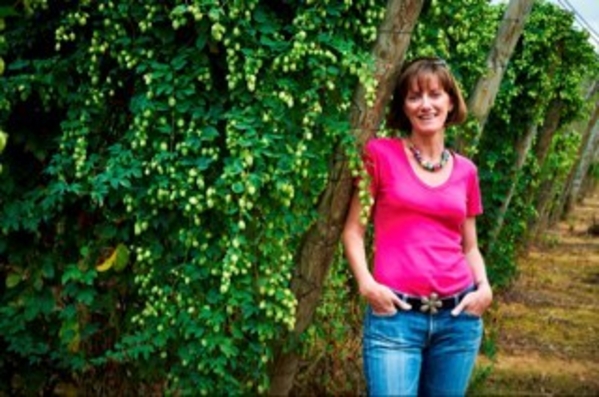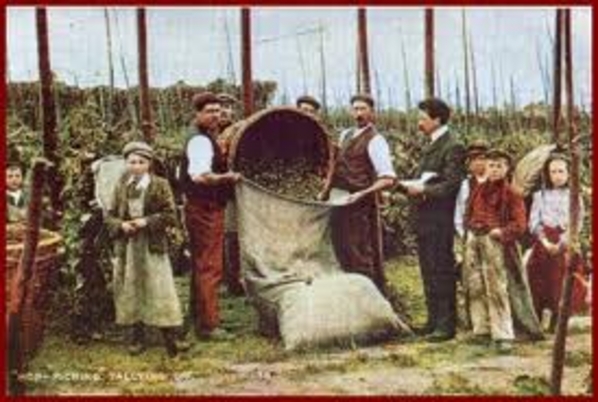Hopping for the best to save beer flavour
Added: Thursday, April 3rd 2014

Like it or loath it – and I’m quite partial to it myself – beer is undeniably a unique form of alcohol. While wine and cider are made from fruit juice, beer is produced by blending two distinctively different ingredients: grain and hops.
Grain, predominantly malted barley, delivers a biscuit flavour to the finished product along with the natural sugar that’s essential for fermentation. Hops balance the malt with bitterness plus aromas and flavours that vary from cedar and pine wood to pungent citrus fruit.
England is famous for its hops. Brewers in most other countries, where lager is the main style, want restrained hop character in their delicate beers. Here we expect a good attack of hop aroma and bitterness: after all, our main type of beer is called Bitter and it does what it says on the tin.
But English hops are in sharp decline. Back in 1872, 72,000 acres of land were devoted to growing hops (image shows hop picking in the early 20th century). Today the figure stands at just 2,500 acres and there are only some 50 hop farms left in the country. We are in danger of losing a once major form of agriculture within a decade.
The reason for the decline in hop growing is complex. In spite of the rapid growth of small craft breweries in recent years, beer consumption has fallen dramatically.
And many of the new breed of small, independent brewers are sourcing their hops not from England but from Europe, Down Under and the United States. In particular, many of the new wave of British brewers prefer the robust citrus character delivered by hops grown as far apart as the U.S. and New Zealand.
If you visit the Boot pub in St Albans Market Place, you will often find a beer called Citra brewed by the Oakham Brewery in Peterborough. The beer takes its name from the Citra hop, grown in the U.S., and, as the name implies, it delivers a powerful citrus/grapefruit aroma and flavour.
In New Zealand, a new hop is called Nelson Sauvin as it’s grown in the Nelson region of the country and has a fruity character similar to the Sauvignon grape. Many brewers welcome these powerful citrus notes and are turning their backs on the quite different characteristics offered by English hops. You can get fruit notes from them but they tend to be orange rather than grapefruit while such famous English varieties as the Fuggle and the Golding deliver flavours reminiscent of pepper, spice and resin.

Ali Capper (pictured) is a leading voice in the British Hop Association. With her husband Richard, she farms 100 acres at Stocks Farm in Herefordshire and she is leading a vigorous campaign to save English hops.
Ali points out that there are 23 different hop varieties grown in England and they offer aromas and flavours that should suit all tastes. English hop farmers led the world in developing a new type of hop called “hedgerow” that grows to half the height of conventional varieties. As a result, they are easier to pick and are less prone to such problems as wilt and pest attack.
Responding to current demand, the Cappers, working with the major brewer Marston’s of Burton-on-Trent, developed a new hop called Endeavour last year. The name was inspired by the forename of the fictional detective Inspector Morse who, as well as being a renowned beer drinker, was christened Endeavour by his strict Quaker parents.
Endeavour is a cross between an American hop called Cascade, which grows at the foot of the Cascade Mountains in Washington State, and an English variety. The result is a hop that offers a more restrained citrus character, blended with the earthy and spicy nature of the English plant.
I wish Ali Capper and her farming colleagues every success in saving English hops. It would be tragedy to lose them and would mean a major change in the character of beer brewed in this country.
*Print version: Herts Advertiser, 3 April 2014.









